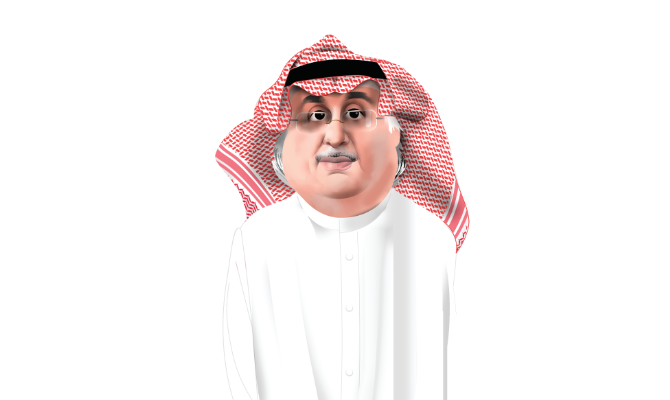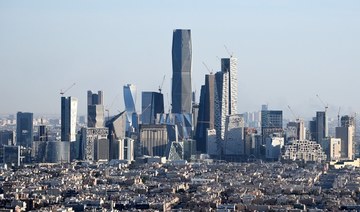DUBAI: In the emergency era of lockdown and social distancing, Waleed Alesia is more convinced than ever that the long-term trend is in exactly the opposite direction.
He is CEO of Raza, one of Saudi Arabia’s leading real estate developers, with many years’ experience of big projects in Riyadh and elsewhere.
“We’re moving away from compounds and toward community, from isolation in a big villa to a more connected community lifestyle,” he told Arab News.
Raza — owned by the Al Ra’ida Investment Co., which is in turn part of the huge Public Pensions Agency (PPA) — has been behind some of the most successful developments in the Kingdom.
Many traveling businesspeople will have attended events in Digital City, a Raza development, or in the Diplomatic Quarter, where it also has a long-term and growing presence.
“Riyadh is the heart of the country. It’s growing and developing, and can only become more thriving with hotspots around metro stations and maybe a third ring road,” Alesia said.
Under current plans, the population of the capital could double from its current 7 million people by 2030.
Raza will be a major player in that expansion, but with a new approach. The era of the big detached villa set in a walled-off compound is giving way to a millennial need for community living, with retail and leisure facilities within a short distance of residential living space.
And, Alesia believes, rental will be the model rather than ownership. “From an investor point of view, our model is to build, lease and maintain. The end-user customers are young, upwardly mobile professionals who are more interested in living in proper communities than buying. But some will want to buy, and they can do that,” he said.
These trends were in evidence before the pandemic hit. “The coronavirus shows how the world is totally connected — what happens on one side affects everywhere,” he said.
“But all our projects are long term and backed by the PPA. The emergency shouldn’t affect them long term, and we’re pushing ahead with all of them. It’s true the economy will probably lose some time, but I don’t think the economic effect will be as much as a year, maybe a few months.”
If there is anything fortuitous about the pandemic for Raza, it is the fact that it hit when current projects are past the labor-intensive phase and on the point of handover.
BIOGRAPHY
BORN: Riyadh, 1962
EDUCATION:
- Graduate in computer science, Sever Institute of Technology, Washington
- PhD in chemical engineering, University of Washington, St. Louis, Missouri
CAREER:
- Director of administration, Capital Markets Authority
- CEO and project manager, King Abdullah Financial District
- Board director, Riyadh Bank
- Board member, Tawuniya insurance company
- CEO, Raza (formerly Al Ra’idah)
“Our two big projects, in Riyadh and Jeddah, are virtually 100 percent complete and ready for tenants,” said Alesia.
“We’re at the stage of marketing and communicating with future customers, so that can be done virtually. The pandemic will have an effect, but it won’t be catastrophic.”
The Riyadh development is a flagship. Digital City, opened in 2017, is already a successful project in the heart of the capital, housing many big corporations and businesses in a mixed-use environment.
Three new clusters will be added under the current plans, with 2,250 units, including some villas, but aiming essentially to create a liveable and workable urban environment around the East Village residential area and the Village Square retail and leisure site. Around 10 percent of the new project will be used by short-stay customers. Alesia said the existing Digital City development is 100 percent occupied, with a waiting list.
In the Diplomatic Quarter, work is well underway to turn the area into a cultural and social district, as well as the hub for the foreign missions that it has always been.
Raza is developing two new plazas in Al-Fazari and Al-Kindi districts, and linking them with a promenade.
“The Diplomatic Quarter will become more cultural and art focused, with more retail and hotels,” Alesia said.
In Jeddah, work is also well advanced on the Obhur district, on the corniche north of the city. The development will provide 2,550 units in 74 buildings, in an area that is already at the center of the Red Sea coast tourism industry.
Two major lessors are interested in taking big chunks of the project, Alesia said, and are very close to signing up. “We’re preparing for the handover and confident it will happen,” he added.
On the G20, I’m 100 percent sure it will go ahead as a physical event. There have been lots of virtual events, but I’m sure that by November it will be business as usual again.
Waleed Alesia, CEO of Raza
He sees Jeddah as a hub for the big developments along the Kingdom’s west coast, from Neom in the north to the Red Sea Development further south, with all the infrastructure, industry and employment that will create.
There are also plans to develop a big compound in Dammam in the Eastern Province, in line with the Raza mission statement. “We’re moving toward making it a community, not just a compound,” Alesia said.
All Raza developments have a high technology element as part of their “community” orientation.
“In keeping with our commitment to professionalize the market, we’ve introduced new-to-market concepts to Saudi Arabia that enhance the integrated community experience where people want to live, work and relax,” Alesia said.
“In this context, technology plays a critical role, and the digital transformation journey will help us introduce several industry-first propositions in the region.”
Raza has SR13 billion ($3.46 billion) of assets under management, all of it from the PPA, but that could grow rapidly in the next couple of years as it seeks third-party involvement in its business.
It is a fairly common technique to include other asset managers in other parts of the world, and will have the benefit of significantly bringing down costs for the PPA. By then, Raza will be the largest “community” landlord in the Kingdom.
“We launched the Raza model in order to build on our unrivaled experience with delivering large, challenging projects in Saudi Arabia,” Alesia said.
“Raza is designed to preserve and enhance the value of these big investments with a strategic, life-cycle approach to asset management. Our model is to combine our local knowledge and relationships with global institutional standards.”
Another element of the move to international standards will come soon when Alesia unveils a planned joint venture with a global property and facilities management company.
He declined to name the intended partner, but said a deal could be signed in “three or four months.”
He added: “You can build your business from scratch, or via a partnership with a well-established international service company.”
In a previous stage of his career, Alesia was in charge, as CEO and project manager, of the ambitious team charged with making Riyadh a regional financial hub via the construction of the King Abdullah Financial District (KAFD).
Despite delays and overruns, the KAFD is now being run by the Public Investment Fund, and is shaping up to be one of the centerpieces of the G20 Summit of global leaders due to take place in Saudi Arabia in November.
Alesia is convinced that both the KADF and the G20 will be successful, despite the pressures of the pandemic and the lockdown of large parts of the Saudi workforce.
“I’m very confident the KAFD will be very successful. It’s so needed by Riyadh and the country to have a financial district and center. Making Riyadh a financial center for the region and for the world is very important,” he said.
The run-up to the G20, especially the preparatory meetings of finance ministers and central bank governors, has been disrupted by the restrictions on travel and business contact because of the lockdowns in most countries.
But the Kingdom has led the way in replacing these with hi-tech “virtual” meetings and events that have kept the G20 timetable on track.
Will the big gathering in November go ahead as a physical event, or as another virtual gathering?
“On the G20, I’m 100 percent sure it will go ahead as a physical event. There have been lots of virtual events, but I’m sure that by November it will be business as usual again,” Alesia said.
In the fast-changing world under the economic effects of the pandemic, that is an important pledge, as Alesia realizes.
“Growth and change have always happened so quickly, and we need to be ahead of it. We’re ready for it, but predicting the future is always a challenge,” he said.






















